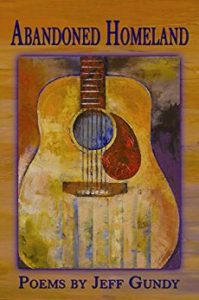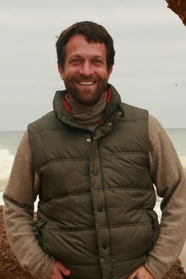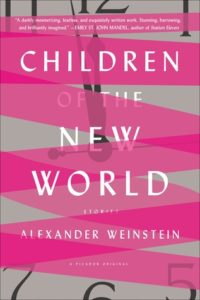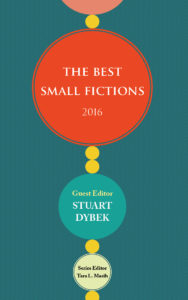Abandoned Homeland, by Jeff Gundy. Huron, Ohio: Bottom Dog Press, 2015. 92 pages. $16, paper.
“How else to describe this absurd, lovely world?” is the question Jeff Gundy poses in the titular poem of his seventh book of poetry, Abandoned Homeland.
Gundy attempts to answer that question, and succeeds, in poems that feature the poet as the main character. They are poems concerned with observation, contemplation, and rumination on the past and time, as well as meditation on humanity’s place in the grand scheme of nature and the sublime. In fact, the book starts off with such observation and contemplation about the human body in the poem aptly titled “The Body.” It is a belief and a trust in the importance of our soul and of miracles, even in places we don’t often look:
… The body is more than some clay jar
with a dismal eternal glob inserted. It is to be trusted,
especially when it says Not too fast. The waterfall twists
and rumbles, alien, unstoppable, coming up stunned
and foaming on the rocks, broken into froth and magic
every second, hurrying onward as if not changed at all.
Though Gundy casts himself as the main character, other characters that figure prominently in these poems, either at the forefront or whispering quietly in the background, are the people and places throughout the Midwest. Whether it’s listening to a three-piece band in the Underdog Café or speaking of literary theme in an Ohio classroom, Gundy uses words and phrases that lets his reader experience the setting along with him, such as in “Rhapsody at the Underdog Café”:
Run your fingers through my soul, reads the poster, but I don’t
Believe I will. We’re barely even friends. A happy three-piece band
is playing in a corner of the Underdog Café. My new friends
didn’t know any of their songs, but I knew them all—“Wagon
Wheel,” “San Francisco Bay Blues,” “I Can See Clearly Now.”
The second cup of coffee is a dime cheaper and better
than the first. …
Gundy also wants to remind the reader that the place he, and everyone else, comes back to is “the country of the mind.” Preoccupations and meditations on his family, his past, and specific places serve to remind us that though we are all different, we seek to escape the world through such thoughts. No matter what we might do to escape, Gundy reminds us that we are all exiles in an abandoned homeland, and if anyone tries to stop us from being ourselves or from leaving, he tells us, “They’ll have to let us go.”
—Brandy Clark, Moon City Review





